Ipas, in collaboration with the International Federation of Gynecology and Obstetrics (FIGO) and MSI Reproductive Choices, hosted an event at the margins of the Global Conference on Health and Climate Change.
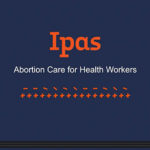
A set of abortion care videos designed to better train health care providers to improve their abortion care and help women safely self-manage their abortion using pills. There are 11 videos for health workers and 3 videos for women. These videos were filmed in facilities in Africa and Asia and are consistent with the latest WHO and Ipas clinical guidance.
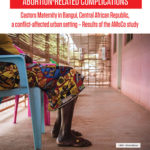
This eight-page brief outlines selected findings from a research project on the burden of abortion-related complications and their contributing factors in the Maternity of Castors in Bangui, Central African Republic. The study found a greater severity of abortion-related complications in this facility compared to African hospitals in stable settings and reinforces the need to recognize abortion as a serious health issue among fragile or crisis-affected populations.
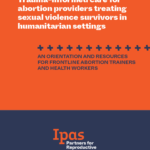

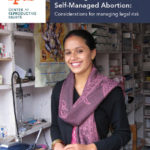
This publication, created by Ipas and the Center for Reproductive Rights, is designed to help individuals and groups consider the potential impact of abortion regulations and offer tools to help assess legal risk when supporting access to self-managed abortion.
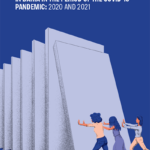
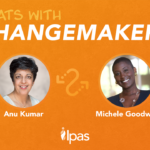
A thought-provoking conversation between Ipas President and CEO Anu Kumar and award-winning author, advocate, professor and social commentator Michele Goodwin.

The Center for Health, Human Rights and Development (CEHURD), in partnership with Ipas Africa Alliance, held a regional exchange learning webinar on 25 August 2021, hosted by the Africa Coalition for Safe Abortion (ACSA). ACSA is a broad-based coalition of regional health and human rights civil society organizations that are committed to advocate for access to safe and legal abortion services in line with the Maputo Protocol. This one-page fact sheet outlines the discussion and actions taken during the learning exchange.
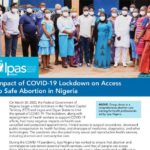
Sexual and reproductive health care is often neglected or difficult to access during a crisis, and this can in turn drive more people to seek unsafe abortions that risk their health and lives. For these reasons, Ipas Nigeria conducted a study to understand the impact of Nigeria’s COVID-19 lockdowns on access to safe abortion. Overall, study findings show that the lockdowns exacerbated the pandemic’s impact on women’s access to safe abortion services.
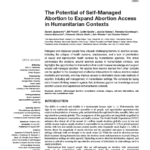
Refugees and displaced people face uniquely challenging barriers to abortion access, including the collapse of health systems, statelessness, and a lack of prioritization of sexual and reproductive health services by humanitarian agencies. In this commentary published in Frontiers in Global Women’s Health, the authors summarize the evidence around abortion access in humanitarian contexts, and highlight the opportunities for interventions that could increase knowledge and support around self-managed abortion.

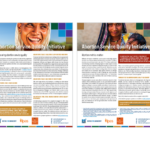
These two fact sheets—Measuring Abortion Service Quality and Abortion Metrics Matter— describe the Abortion Service Quality Initiative’s work to develop a set of common, reliable and evidenced-based metrics to evaluate the quality of abortion care.

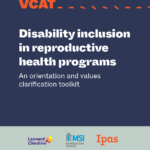
This toolkit provides all the resources needed to plan workshops for organizations that want to build a disability inclusion mindset among their staff and partners who work on abortion and sexual and reproductive health and rights programs.
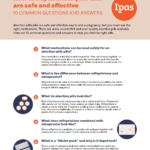
Abortion with pills is a safe and effective way to end a pregnancy, but you must use the right medications. There are many counterfeit and poor-quality abortion pills available. Here are 10 common questions and answers to help you find the right pills.
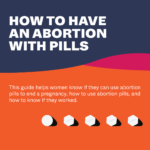
This guide helps women know if they can use abortion pills to end an unwanted pregnancy, how to use the pills, and how to know if they worked.
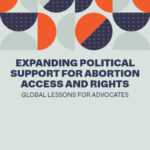
Advocating for abortion access is unlike advocacy on any other global health-care issue. This publication shares insights and lessons learned by Ipas staff and our partners around the world through decades of advocacy work to expand abortion access. The content outlines key obstacles and opportunities that advocates encounter, plus strategies for overcoming common challenges.
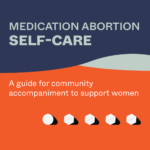
This guide includes basic information on medication abortion (abortion with pills) and was developed to help community members trained in accompaniment to support women with safe options in their abortion care. The term “accompaniment” refers to any support offered a woman during her entire experience of considering, seeking and engaging in abortion self-care.
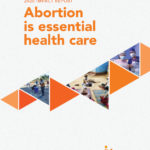
We believe in a world where every person can determine their own future. In our 2020 Impact Report, learn about Ipas’s global results and our vital work to protect and expand abortion access during the COVID-19 pandemic.

